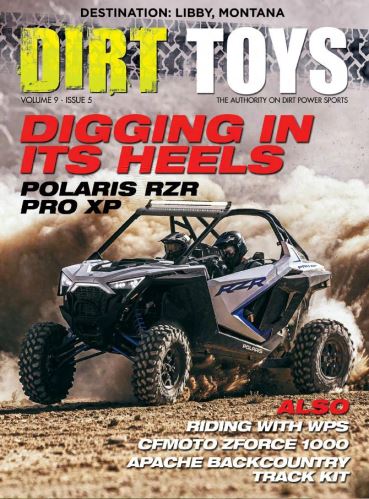Saskatchewan has rejected a call from the Saskatchewan All-Terrain Vehicle Association to register ATVs.
The group made a presentation to the Crown and Central Agencies Caucus Committee on April 30, requesting mandatory registration of ATVs that operate on public property, mandatory training for all riders on public property, and to partner with government to repair and maintain trails on crown property.
In response, the association received a letter from Saskatchewan Government Insurance (SGI) Minister Donna Harpauer's office declining their recommendations, general manager John Meed said.
"We said, `Don't take our word for it. We'd like to see an independent study that could look at all these issues and make some recommendations,' but they didn't want to go down that road, I guess," Meed said.
An Royal Canadian Mounted Police spokesperson wasn't able to provide crash statistics for 2013 as of press time.
According to SGI, the number of ATV crashes in Saskatchewan varied between 31 and 47 in each of the last five years, resulting in 179 injuries and 23 deaths.
Most recently, a 21-yearold Kindersley woman died last weekend when she was thrown from her ATV at a gravel pit.
When snowmobile registration began in 1973, the number of snowmobile crashes declined, Meed said.
"And the reason for that is, if people know they can be identified, they're a lot less likely to operate foolishly," he said. "And it does give people an opportunity to identify somebody who is misbehaving or operating unsafely to the police."
The Saskatchewan Snowmobile Association has also used registration fees to groom trails, which is a safer option, Meed said.
"Right now in southern Saskatchewan there are not a lot of trails-organized, managed and groomed trails-for ATV riders," he said. "So, typically, it's going in the ditch, or going in places you're really not supposed to be going. And [these are] some of these unsafe locations where people will get themselves into trouble."
Stricter safety training is also needed, Meed said.
Currently, provincial rules only require training for youth aged 12 to 15 years and those without a driver's license when operating an ATV on public property.
"The dynamics of that particular vehicle are not like any other vehicle," said Meed. "It's not like a snowmobile. It's not like a car. It's not like a motorcycle."
SGI spokesperson Kelley Brinkworth said circumstances were different in 1973, and SGI likely wouldn't recommend having snowmobiles registered now.
The Crown corporation focuses on vehicles designed for use on provincial roads and provides insurance protection for motorists.
Back then, snowmobiles were used more for transportation than recreation, she said.
"People were using them to get around," she said, "more so than they would be now."

